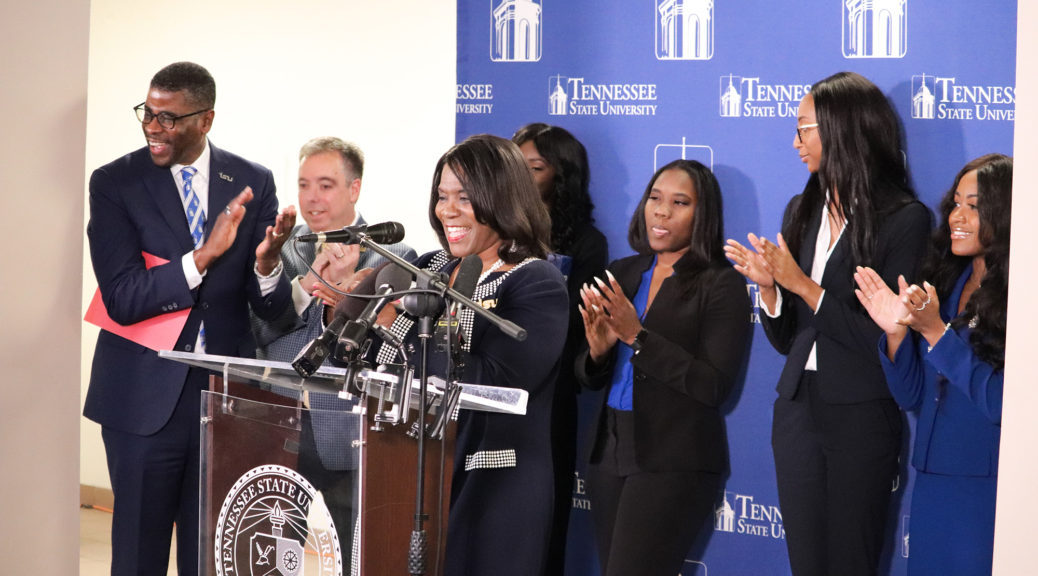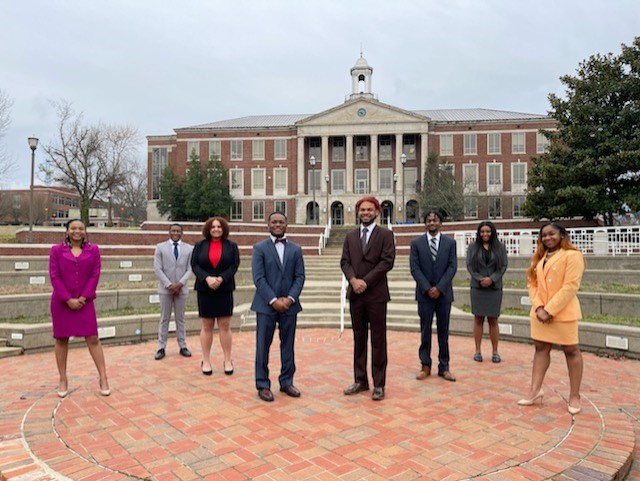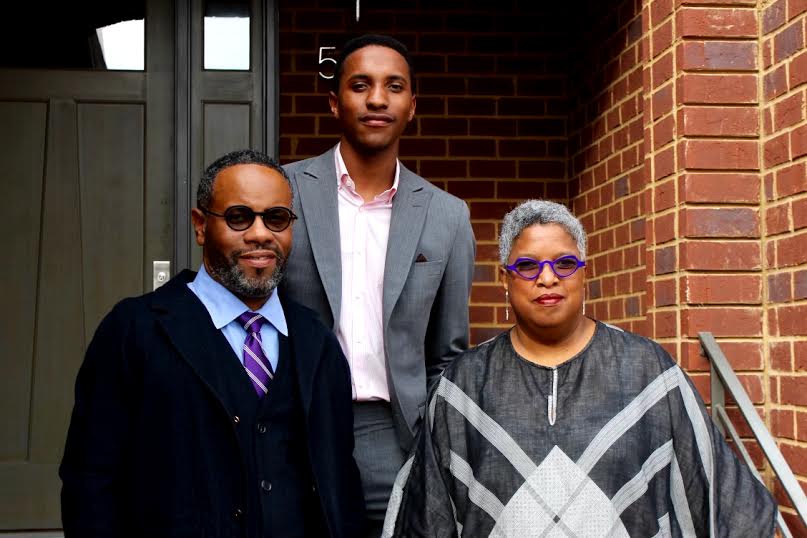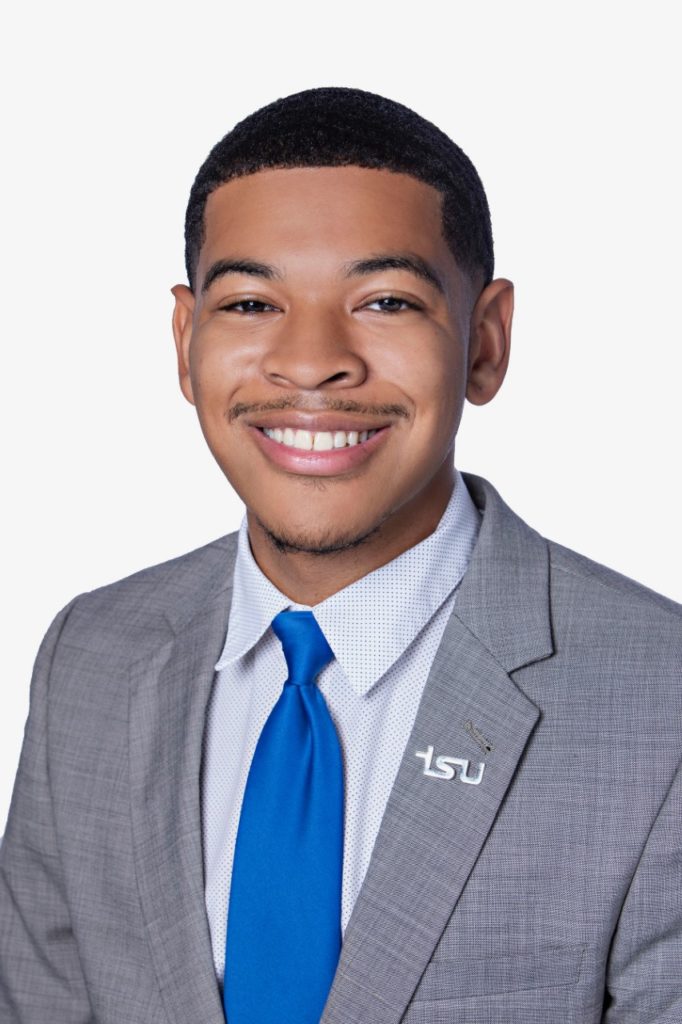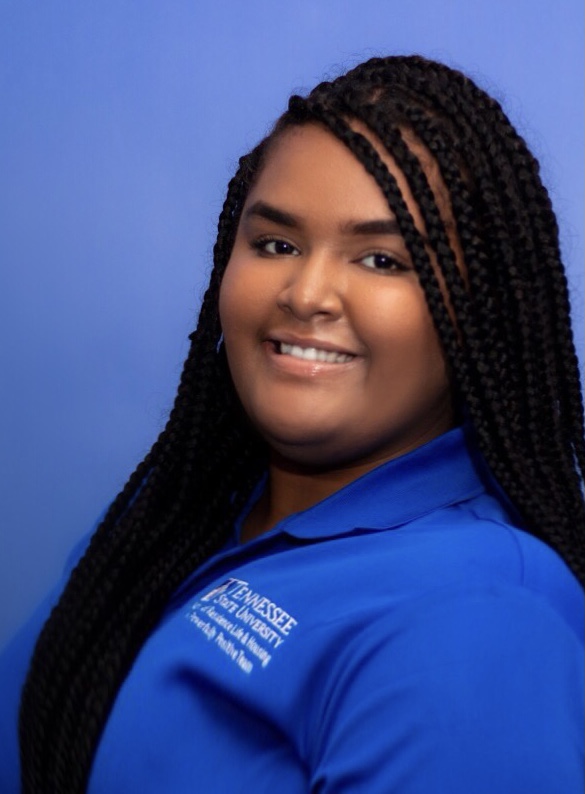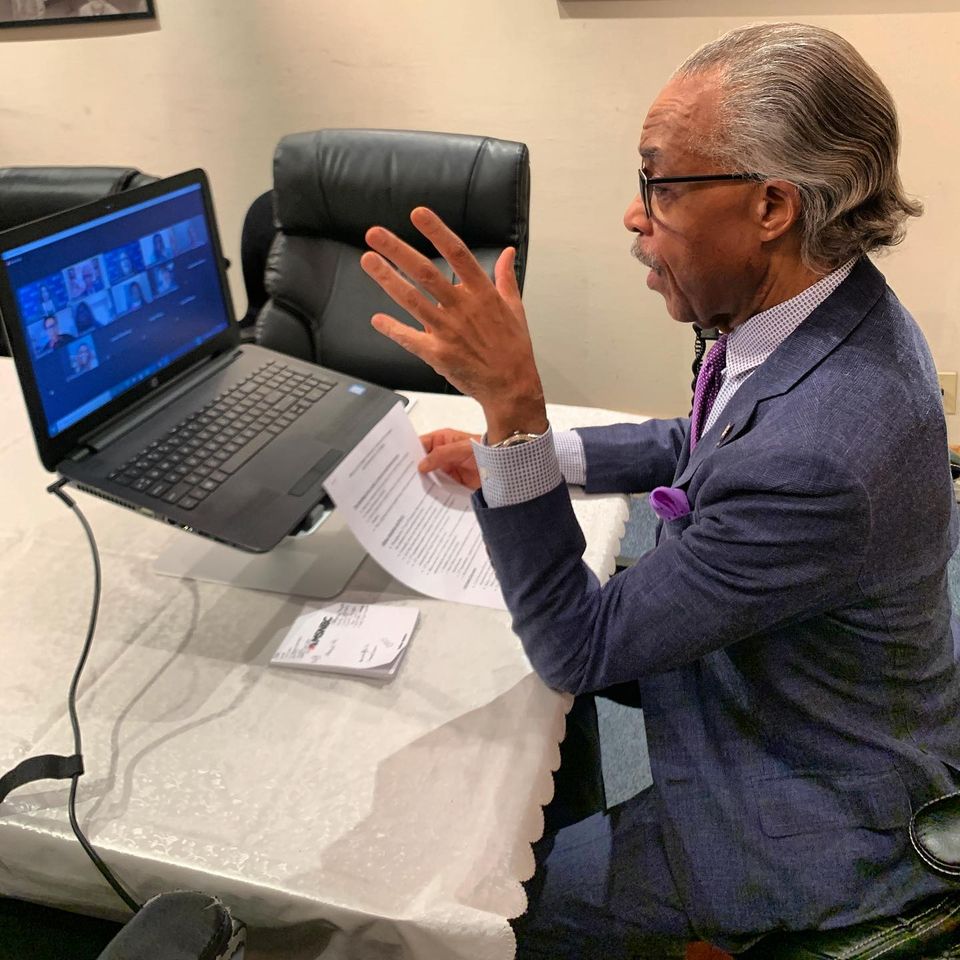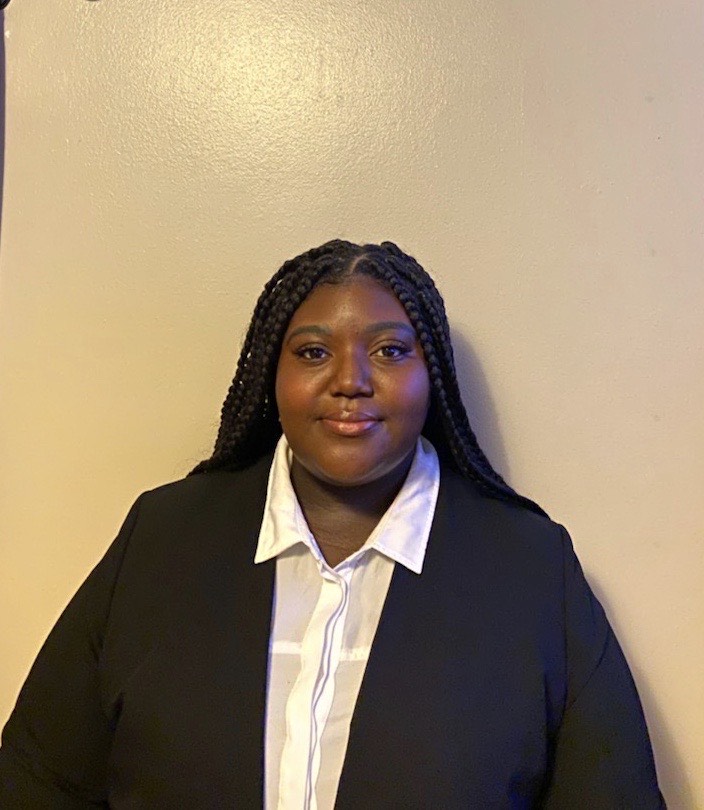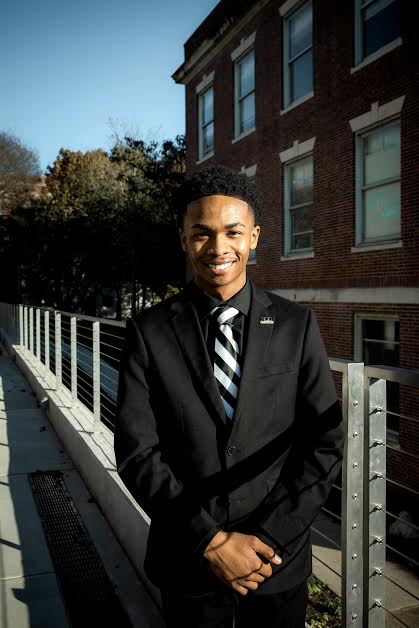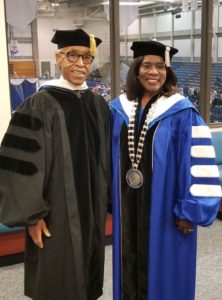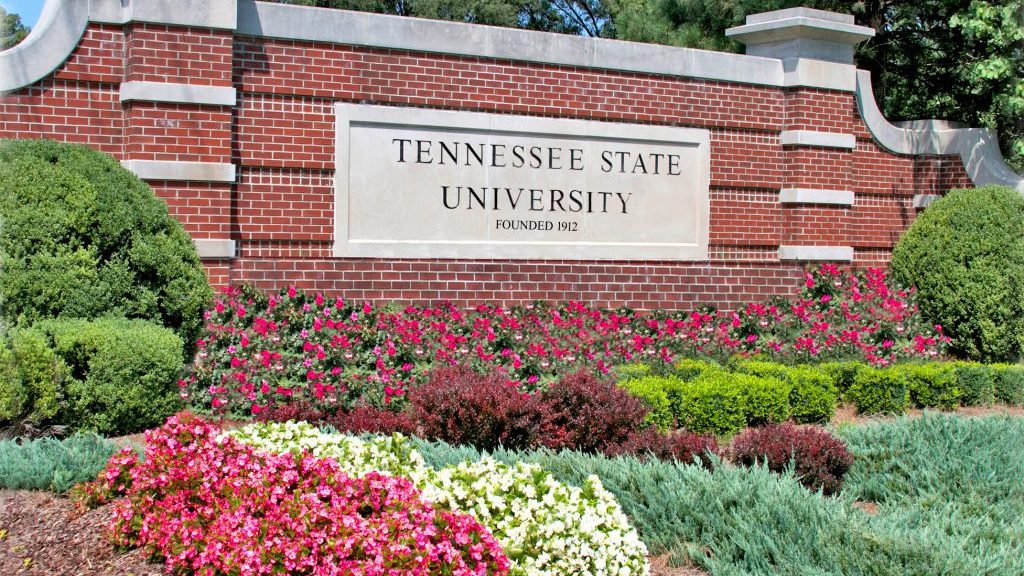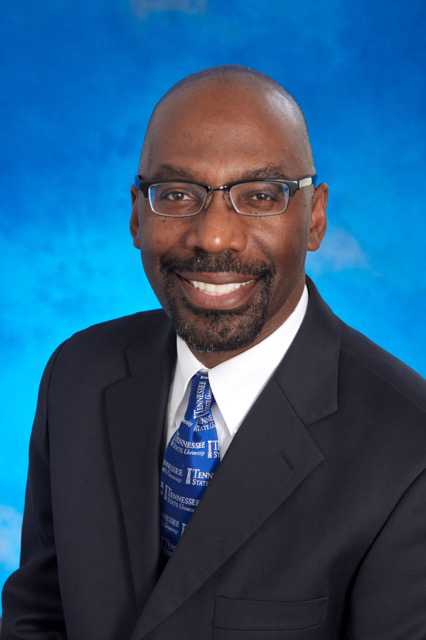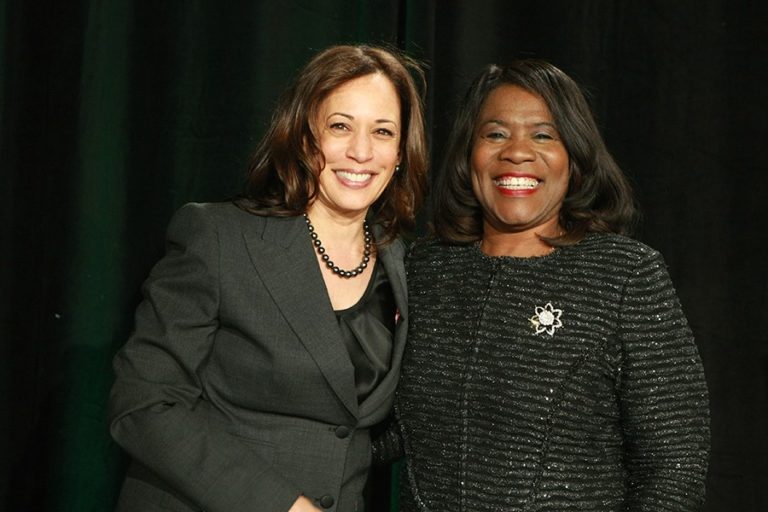NASHVILLE, Tenn. (TSU News Service) – Tennessee State University and the Nashville Predators say students are continuing to reap the benefits of their partnership, as intended, a year after it was announced. The two organizations formed the collaboration to promote student success through scholarships for retention, along with educational and employment opportunities.

Last February, the Predators joined TSU in kicking off a campaign to raise $1 million in a month. The university exceeded its goal. But TSU and the Predators were of the same mindset to create initiatives that would have a long-standing impact after the fundraising campaign ended.
“This historical partnership between TSU and the Nashville Predators, an HBCU and professional hockey team, is about sowing the seeds of success for our students in a sport where African Americans have had limited access,” said TSU President Glenda Glover.
“We appreciate the leadership of President and CEO Sean Henry and his executive team for being trailblazers and continuing to provide a platform for TSU students to actively participate within the organization. They have been committed to this collaboration since the beginning and it has only grown stronger. This is especially meaningful to the TSU family in light of the social justice reckoning our country is experiencing.”
The Predators’ partnership with TSU falls in line with the National Hockey League’s “Hockey Is For Everyone” initiative, and the Predators’ effort to create positive change with their GUIDER (Growth, Understanding, Inclusion, Diversity, Equality and Representation) initiative, founded with the objective of diminishing the prevalence of social injustice.
“When we announced the $1 million in one month campaign a year ago, we did so with a vision to make it bigger and better than just a short-term pledge,” said Predators President and CEO Sean Henry. “Since shattering that mark, and through all the wide range of events and social injustices of 2020, I could not have imagined just how impactful and comprehensive our partnership with TSU would become. Their assistance and involvement in the launch of our GUIDER Group, educational opportunities with our staff, and engagement in our internship program has helped elevate us both to unreached heights.”

“Through their GUIDER diversity and inclusion initiatives, the Nashville Predators have actively sought opportunities to support and empower diverse leaders and change-makers in the Nashville area,” said Kim Davis, NHL Senior Executive Vice President of Social Impact, Growth Initiatives, and Legislative Affairs. “Developing a partnership with Tennessee State University, which has empowered generations of HBCU students, is an incredibly fitting manifestation of these goals and values. The relationship between the Predators and TSU demonstrates how collaborative efforts can powerfully strengthen the communities that NHL Clubs call home, whether that is through fundraising for those who need it most or maintaining ongoing dialogue for education and social change.”
Among students benefitting from TSU’s partnership with the Predators is Jaden Tyson. The sophomore mass communications major at TSU has an internship at the Ford Ice Center this semester with the Predators.
Tyson is part of the team’s Smashville Education 101 program and he’s making the most of his opportunity. He’s scheduled events at Ford Ice Center involving the Little Preds Learn to Play Programs, as well as finding coaches, referees and scorekeepers for various games, practices and events. Tyson also recently worked a Predators Get Out And Learn! (G.O.A.L!) event, giving him insight into what it takes to get children on the ice at the grassroots level.
“Take in everything and be a sponge – that’s one thing I am learning,” Tyson said. “I’ve gotten better at taking it all in and seeing everything day by day, just observing and asking questions too. I would say ask as many questions as you can, because you never know when it will come back around. You want to ask it all because you never know how it could help you, whether it’s at your next internship or further down the line. You never know.”
Frank Stevenson is TSU’s associate vice president of student affairs and dean of students. He said he’s looking forward to what the future holds for the university’s partnership with the Predators.

“The Nashville Predators is an organization that has a long history of community partnership and support,” said Stevenson, who was recently selected to serve on the 2021 Nashville Predators Foundation board of directors. “We believe the experiences our TSU students will receive in collaboration with the Predators will benefit them immensely. They will be exposed to skills in a fast pace environment and learn from a top-notch local organization. We are excited to see this continue to grow.”
As the semester continues, Tyson said his goal is to pass what he learns from this experience with the Predators on to fellow TSU students with the hope that they will consider getting internships, and like him, make the most of it.
To learn more about the Predators’ initiative to promote positive change, visit http://bit.ly/37MX17T.
